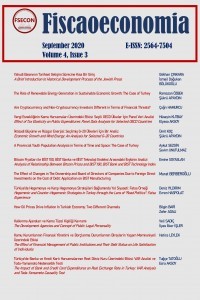
Fiscaoeconomia
Yazarlar: Gökhan ÖZKUL, Muhammed KASIM
Konular:Sosyal
DOI:10.25295/fsecon.851028
Anahtar Kelimeler:Stock Market,Stock Market Development,Asia-Pacific Countries,Panel Data Analysis,Arellano-Bover (GMM) Model
Özet: Stock markets contribute greatly to economic growth and development by encouraging capital accumulation. This contribution is parallel with stock market’s development level. Therefore, it is very important to reveal the factors affecting the development of stock markets. The aim of this study is to examine the effect of macroeconomic factors on stock market development using annual panel data of Asia-Pacific countries for period 1995-2019. In the study, stock market development was measure using stock market capitalization as a percentage of GDP. Money supply, foreign capital inflows, exports, savings rate, inflation, interest rate, GDP per capita and unemployment rate were used as macroeconomic determinants of the stock market. Firstly, Hausman test was conducted to make a choice between the random effect model and the fixed effects model. According to the result of Hausman test, fixed effect method is confirmed as the most appropriate method to evaluate model of study. In addition, the heteroscedasticity problem was tested with the modified Wald test and the autocorrelation problem was tested with the Wooldridge test. In this context, both heteroscedasticity and autocorrelation problem were determined in the model. Dynamic panel analysis Arellano-Bover (GMM) model was conducted to fix heteroscedasticity and autocorrelation. According to the results obtained from the Arellano-Bover (GMM) model, it was found that money supply, foreign capital inflows, exports and GDP per capita positively affected stock market development, while inflation and unemployment had a negative effect. Savings rate and interest rate had no significant effect on stock market development.